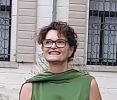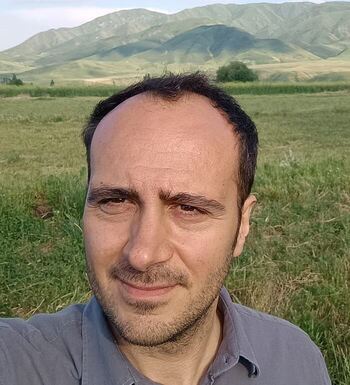Studying at the University of Verona
Here you can find information on the organisational aspects of the Programme, lecture timetables, learning activities and useful contact details for your time at the University, from enrolment to graduation.
Academic calendar
The academic calendar shows the deadlines and scheduled events that are relevant to students, teaching and technical-administrative staff of the University. Public holidays and University closures are also indicated. The academic year normally begins on 1 October each year and ends on 30 September of the following year.
Course calendar
The Academic Calendar sets out the degree programme lecture and exam timetables, as well as the relevant university closure dates..
| Period | From | To |
|---|---|---|
| Sem. 1A | Sep 24, 2018 | Nov 10, 2018 |
| Sem. 1B | Nov 19, 2018 | Jan 12, 2019 |
| Sem. 2A | Feb 18, 2019 | Mar 30, 2019 |
| Sem. 2B | Apr 8, 2019 | Jun 1, 2019 |
| Session | From | To |
|---|---|---|
| Sessione Invernale | Jan 14, 2019 | Feb 16, 2019 |
| Sessione Estiva (Gli esami sono sospesi durante la Sessione di laurea) | Jun 3, 2019 | Jul 27, 2019 |
| Sessione Autunnale | Aug 26, 2019 | Sep 21, 2019 |
| Session | From | To |
|---|---|---|
| Sessione Estiva | Jul 8, 2019 | Jul 13, 2019 |
| Sessione Autunnale | Nov 4, 2019 | Nov 9, 2019 |
| Sessione Invernale | Mar 30, 2020 | Apr 4, 2020 |
| Period | From | To |
|---|---|---|
| Festa di Ognissanti | Nov 1, 2018 | Nov 1, 2018 |
| Festa dell’Immacolata | Dec 8, 2018 | Dec 8, 2018 |
| Vacanze di Natale | Dec 22, 2018 | Jan 6, 2019 |
| Vacanze di Pasqua | Apr 19, 2019 | Apr 23, 2019 |
| Festa della liberazione | Apr 25, 2019 | Apr 25, 2019 |
| Festa del lavoro | May 1, 2019 | May 1, 2019 |
| Festa del Santo Patrono - S. Zeno | May 21, 2019 | May 21, 2019 |
| Festa della Repubblica | Jun 2, 2019 | Jun 2, 2019 |
| Vacanze Estive | Aug 12, 2019 | Aug 17, 2019 |
Exam calendar
Exam dates and rounds are managed by the relevant Humanistic Studies Teaching and Student Services Unit.
To view all the exam sessions available, please use the Exam dashboard on ESSE3.
If you forgot your login details or have problems logging in, please contact the relevant IT HelpDesk, or check the login details recovery web page.
Academic staff
 francesco.bianchi@univr.it
francesco.bianchi@univr.it
 bonifacio@teologiaverona.it
bonifacio@teologiaverona.it
 evita.calabrese@univr.it
evita.calabrese@univr.it
 andrea.cavalletti@univr.it
andrea.cavalletti@univr.it
 francesco.lupi@univr.it
francesco.lupi@univr.it

Mastrocinque Attilio
 attilio.mastrocinque@univr.it
attilio.mastrocinque@univr.it
 +39 045802 8386
+39 045802 8386
 linda.napolitano@univr.it
linda.napolitano@univr.it
 pieralberto.porcedducilione@univr.it; pierre_pordd@yahoo.it
pieralberto.porcedducilione@univr.it; pierre_pordd@yahoo.it
 045 8028732
045 8028732
 nicola.turrini@univr.it
nicola.turrini@univr.it
 lucia.vantini@univr.it
lucia.vantini@univr.it
 mariarenata.zanchin@univr.it
mariarenata.zanchin@univr.it
Study Plan
The Study Plan includes all modules, teaching and learning activities that each student will need to undertake during their time at the University.
Please select your Study Plan based on your enrollment year.
1° Year
| Modules | Credits | TAF | SSD |
|---|
Other activities2° Year activated in the A.Y. 2019/2020
| Modules | Credits | TAF | SSD |
|---|
1 module to be chosen among the following1 module to be chosen among the following3 modules to be chosen among the following3° Year activated in the A.Y. 2020/2021
| Modules | Credits | TAF | SSD |
|---|
3 modules to be chosen among the following1 module to be chosen among the following| Modules | Credits | TAF | SSD |
|---|
Other activities| Modules | Credits | TAF | SSD |
|---|
1 module to be chosen among the following1 module to be chosen among the following3 modules to be chosen among the following| Modules | Credits | TAF | SSD |
|---|
3 modules to be chosen among the following1 module to be chosen among the following| Modules | Credits | TAF | SSD |
|---|
2 modules to be chosen among the following3 modules to be chosen among the followingLegend | Type of training activity (TTA)
TAF (Type of Educational Activity) All courses and activities are classified into different types of educational activities, indicated by a letter.
Theoretical Philosophy (2020/2021)
Teaching code
4S00754
Teacher
Coordinator
Credits
12
Language
Italian
Scientific Disciplinary Sector (SSD)
M-FIL/01 - THEORETICAL PHILOSOPHY
Period
Sem. 1A, Sem. 1B
Learning outcomes
The course aims to provide students with the conceptual tools that will enable them to comprehend the language and the main problems of contemporary philosophy, with a special focus on phenomenology, hermeneutics, and post-structuralism. Students will acquire a good knowledge of the topics and the texts read and discussed during the course, sharpening their capacity of speculative analysis and critique. The course aims in particular to analyze a) the meaning of philosophical practices; b) the relation between thought and experience; c) the entanglement of thinking and the unconscious.
At the end of the course, students will know the main conceptual lines of Western philosophical tradition and the most important debates going on in contemporary philosophical. They will also be able to comprehend philosophical texts, to set them within a proper critical frame, to employ a correct philosophical terminology, and to autonomously form judgements on the subjects dealt with in classes. Finally, they will also be capable to communicate philosophical contents to specialists and non-specialists alike, and to continue their studies at a MA level.
Program
The course deals with the following topics:
. Philosophical practice. The relationship between concepts and questions. The figures that accompany this practice. The relationship between philosophy and art. Infinity, condensation, chaos. Reference book: Gilles Deleuze and Felix Guattari, "Che cos'è la filosofia?", Einaudi, chap. 1-4, chap. 7. Conclusion.
. The centrality of the connection between feeling, nature and language in contemporary philosophy through some thinkers (male and female): Ingeborg Bachmann, Anna Maria Ortese, Maurice Merleau-Ponty. Reference book: Chiara Zamboni, "Sentire e scrivere la natura", Mimesis ed. This text suggests how human language, when poetical, resumes and relaunches non-human languages.
. The third topic of the course poses the following question: how does Chinese culture cause us to rethink our cultural models within the theme of landscape, nature and language? The reference book is Francois Jullien, "Vivere di paesaggio o l'impensato della ragione", Mimesis ed.
| Author | Title | Publishing house | Year | ISBN | Notes |
|---|---|---|---|---|---|
| Gilles Deleuze Félix Guattari | Che cos'è la filosofia? | Einaudi | 2002 | ||
| Chiara Zamboni | Sentire e scrivere la natura (Edizione 1) | Mimesis | 2020 | 978-8-857-56345-1 | |
| François Jullien | Vivere di paesaggio o l'impensato della ragione | Mimesis | 2017 |
Examination Methods
There will be an oral examination both for those who attend the courses and those who cannot. Those students who cannot attend must contact the teacher for further information on the ponts in the programme and discuss them. The purpose of the oral examination will not only be to verify the students' understanding of the topics but also wheter they have developed autonomy of judgment and a good capacity of argumentation.
While the pandemic lasts, physically attending the examination or taking it on-line will be decided on a moment-to-moment basis.
Type D and Type F activities
Modules not yet included
Career prospects
Module/Programme news
News for students
There you will find information, resources and services useful during your time at the University (Student’s exam record, your study plan on ESSE3, Distance Learning courses, university email account, office forms, administrative procedures, etc.). You can log into MyUnivr with your GIA login details: only in this way will you be able to receive notification of all the notices from your teachers and your secretariat via email and also via the Univr app.
Student mentoring
Linguistic training CLA
Gestione carriere
Practical information for students
Documents
| Title | Info File |
|---|---|
|
|
pdf, it, 325 KB, 16/07/24 |
|
|
pdf, it, 212 KB, 02/05/23 |
|
|
pdf, it, 131 KB, 02/05/23 |
Graduation
Documents
| Title | Info File |
|---|---|
|
|
pdf, it, 109 KB, 12/07/24 |
|
|
pdf, it, 112 KB, 14/05/24 |
List of thesis proposals
Stage e Tirocini
Student login and resources
Modalità e sedi di frequenza
La frequenza non è obbligatoria.
Maggiori dettagli in merito all'obbligo di frequenza vengono riportati nel Regolamento del corso di studio disponibile alla voce Regolamenti nel menu Il Corso. Anche se il regolamento non prevede un obbligo specifico, verifica le indicazioni previste dal singolo docente per ciascun insegnamento o per eventuali laboratori e/o tirocinio.
È consentita l'iscrizione a tempo parziale. Per saperne di più consulta la pagina Possibilità di iscrizione Part time.
Le sedi di svolgimento delle lezioni e degli esami sono le seguenti
- Polo Zanotto (vicino si trova il Palazzo di Lettere)
- Palazzo ex Economia
- Polo Santa Marta
- Istituto ex Orsoline
- Palazzo Zorzi (Lungadige Porta Vittoria, 17 - 37129 Verona)
- Chiostro Santa Maria delle Vittorie, Lungadige Porta Vittoria, 41







































